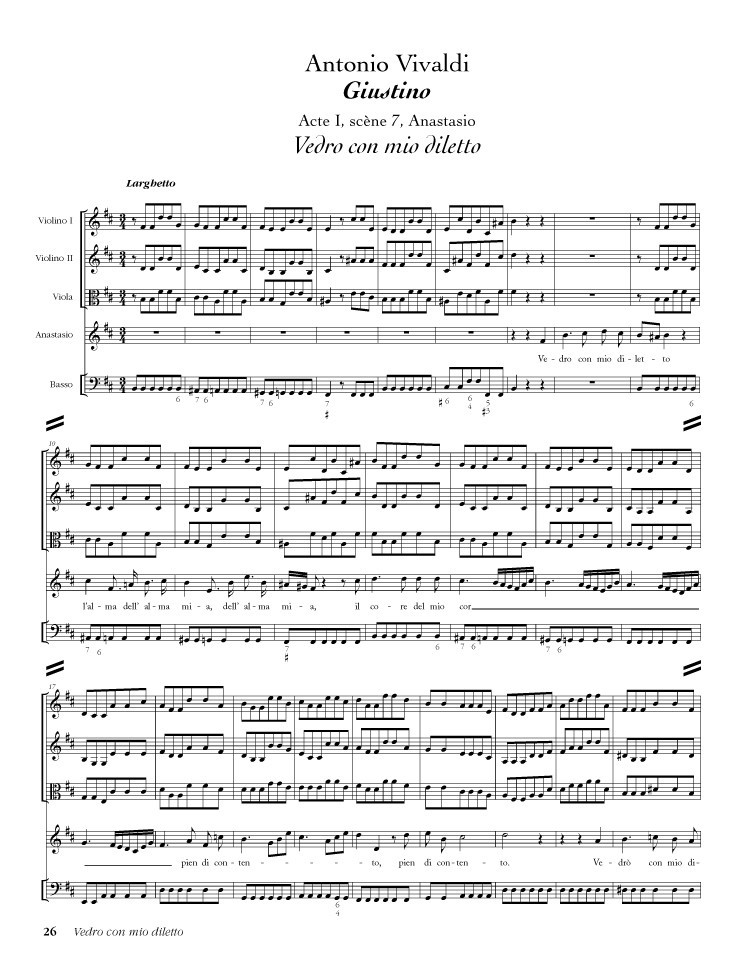

Looking further, an idea of Vivaldi's personality can be pieced together through a scattering of quotes by his contemporaries. These are the scant facts we have to go on, and the basis for contemporary biographies. But Vivaldi consistently denied any wrongdoing. The city's new cardinal was making a moral point - his disapproval of a priest involved in the frivolities of the operatic world and living under the same roof as a female singer. In 1738 Vivaldi was refused entrance to the city of Ferrara where his opera Farnace was to be performed. No other singer received such consistent attention and privilege from the composer. But Anna held a special place in Vivaldi's heart in opera after opera he wrote roles specifically for her, moulding the music to her particular vocal strengths and weaknesses. In truth, this arrangement may not have been so shocking in an age in which priests traditionally maintained a life-long, live-in "perpetua" - a woman who dedicated her time to the priest as cook, house cleaner and general companion. Again, the titillating image of a "loose" priest comes up. She was closely affiliated with him until the end of his life. Anna first sang in one of Vivaldi's operas in 1726 and appeared in nearly all his operas after that. In 1724, this promising young singer and her elder half-sister, acting as chaperone, moved in with Vivaldi.

As to illicit affairs, we have nothing to go on.Ī better documented trail leads to Vivaldi's muse, Anna Giro. For the record, we know he had red hair, wore a habit and suffered from asthma, for which he was excused from having to recite mass. It is easy to imagine a libidinous red-haired priest exploiting the privileges of the cloth, in an institution that even 17th- and 18th-century visitors described with thinly veiled salaciousness.

Imagining Vivaldi in such a scene of temptation, in a role of both authority and intimacy among these vulnerable young women, has seduced writers and film-makers into fantasising about the erotic potential of the scenario. From 1703 to 1735, Vivaldi alternately, and at times simultaneously, played the role of music master and composer to the young girls living at La Pietà.


 0 kommentar(er)
0 kommentar(er)
